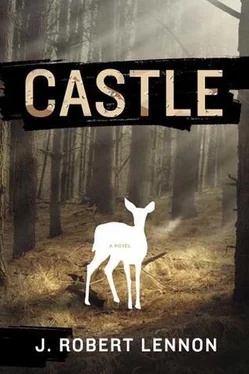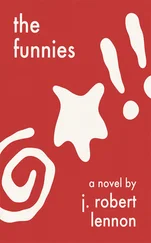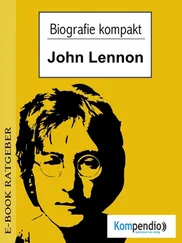It was clear almost immediately, however, that the book would not have the intended effect. The writing was not especially boring or difficult, as I had anticipated, but its subject matter did not sufficiently interest me to justify my continuing to read it. Indeed, I felt a stubborn irritation and became agitated enough to toss it with some force into the corner of the room. I suspected I would do the same with Shaping Behavior, should I have bothered to open it, so I got out of bed, went downstairs, and collected the children’s book I had found while cleaning.
To my surprise, the children’s book was quite absorbing, and I read it with great enjoyment as a rain began to drum against the windows of the house. It was the story of an orphan boy, raised by an old woman, who is sent into the world to find his destiny, with only a sack of simple items — a whistle, a hat, a coin — in his possession. A suspicious stranger tempts the boy in an effort to convince him to give up these meager items, but the boy resists, and eventually uses them to aid him on his journey. The whistle, for instance, summons, as if by magic, a group of helpful animals, including a dog, a bird, and a salamander. In a mysterious city of gold, the boy meets a serving girl, who joins him in his travels, and in time they are trapped in a frozen wood by the stranger, and are only able to escape thanks to the salamander, which melts a hole in their prison using its uncanny ability to radiate heat. Though its pleasures were unsophisticated, the book offered a character with whom I was able to identify, and a portrayal of bravery and self-reliance that corresponded very closely to my own values. I wished only that I could send the book back in time, to my younger self, in his moments of greatest need.
But such fantastic notions were pointless to contemplate, and I pushed them away and soon succumbed to sleep. When I woke, I was greeted by an extraordinary sight. The rain that had begun to fall during the night had frozen, and the woods outside my window were heavily coated with ice. All the way to the rock, the trees were gleaming gray, the buds encased, the branches sagging beneath the weight.
Amazed, I dressed, shouldered on my coat, and went outside. Already, in the dawn light, the air was growing warmer, and the ice was slick and dripping, and the boughs chattered against one another in the balmy breeze. I took a few steps past the treeline, into the gloomy shade, and the air there was cold and crisp. Above me light was filtering dimly through the glassine ceiling of branches, faintly shifting, much as I had imagined the frozen branches to have done in the storybook. The wood seemed very much alive, as if it were coming awake as I had only minutes before.
I remained there, in the bramble, until the ice began to break and rain to the ground around me. Then I stepped out into my yard and listened. The wind blew, the ice fell, and the branches sprung up, their buds again revealed. I felt a deep, nervous excitement, and my fingers and toes began to itch. I was confident now: I would go back into the woods, and I would find the rock and climb to the top.
That day, I decided to leave my hill in order to handle some financial business, and to purchase some additional tools and provisions for my trek back into the woods. I drove into Gerrysburg, parked on the town square, and walked across the park toward the bank.
Perhaps it was the season, or a renewed sense of optimism about my impending adventure, but I thought that downtown Gerrysburg looked considerably nicer and more lively than it had when I was arranging to buy the land. What businesses there were, were just opening for the day, and a few energetic-looking people strode along the sidewalks. The trees here, perhaps influenced by lower elevation and the artificial warmth of civilization, were free of ice, and had advanced farther into leaf than the ones in my forest. And the park was tidier, appearing to have just been cleared of trash. A woman stood before the war memorial, gazing soberly at the list of names, and above her the American flag flew at half-mast, for no apparent reason.
I passed the real estate office and the ice cream parlor on my way to the bank, and so it was appropriate that fate should arrange for me to see, standing and chatting in the middle of the lobby, Jennifer the real estate agent and Jeremy Pernice, the ice cream parlor’s proprietor. In Jennifer’s hand was a cell phone, which she gave the impression of just having hung up; Jeremy was holding a naugahyde zippered bag, the kind small businesses use to deliver their daily deposits. Their conversation appeared animated, and they seemed to know one another quite well. In a general spirit of camaraderie, I approached them and said good morning.
Jeremy Pernice reacted at first with momentary confusion, and then his face settled into an expression of friendly interest, as he recalled who I was and how we had met. He glanced at Jennifer, as if to gauge her reaction.
To my disappointment, Jennifer’s face registered irritation; then she smoothed her features into a mask of forced apathy. It was she who spoke first, primly returning my good morning without addressing me by name. It was obvious, of course, that she was still angry from what she had perceived, weeks before, as rudeness on my part. But since I had no control over her feelings, nor over the extent to which she acted upon them, I could only treat her with the same geniality and politeness I employed with Jeremy Pernice.
“I hope business is good for both of you,” I said.
Jeremy held up his deposit bag in halfhearted enthusiasm. “Could be better, could be worse,” he said.
“And you?” I inquired of Jennifer.
“Fine,” she replied. I nodded, accepting her answer, though I knew that, thanks to me, this had so far been a better-than-average spring, at least financially. Having spoken, she quickly looked away.
I turned to Jeremy. “Well, I wish you continued good luck,” I said. “I have some errands to run, but perhaps I’ll stop by later for a snack.”
“That would be fine,” he said.
With that, I continued to the unnecessarily convoluted maze of ropes that led to the teller window, where I waited in line behind an old woman. After a moment, I heard footsteps behind me, and found Jeremy Pernice standing there, turning his bag over and over in his hands.
“Everything going all right for you out on the hill?” he asked me. It was clear from his expression that his curiosity was intense, and that he was trying, and failing, to suppress his avidity.
“Oh, yes,” I replied. “I’ve largely completed my renovations. It’s a lovely house, and a wonderful location.”
“I guess you’re getting to work, then?” he asked. “On… whatever it is you’re doing?”
“I suppose you could say that.”
He waited, obviously hoping I would continue. But, eager as I was to be a good neighbor, I was not interested in discussing my activities with him. Luckily, the old woman completed her business at that very moment, and I was able to move to the teller window and attend to my own business without Jeremy Pernice’s interference. The teller, however, a middle-aged woman wearing a large, stiff permanent, seemed unusually attentive, watching me fill out my forms with a disconcerting level of interest. I wondered, idly, if she was a friend of Jennifer the real estate agent’s, or of Jeremy Pernice’s; if they had told her about me, speculated with her about my doings. Perhaps Jeremy was standing behind me right now, watching her reaction to my financial activities. The thought irritated me, and I vowed to give him a piece of my mind, should this prove to be the case. But by the time I was through, he was gone; indeed, the bank was empty of customers. As I returned to my car, I ventured a glance into the ice cream parlor, and saw Pernice behind the counter, talking to his employee, the girl I had met there weeks ago. The two looked up as I passed, and stared at me with obvious curiosity.
Читать дальше











